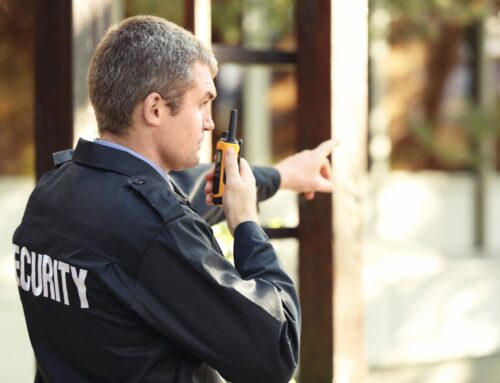Ensuring Security Guard Wages Remain Current and Commensurate with Their Vital Role in Communities
California has witnessed a significant shift in the wage landscape, with the minimum wage for fast-food workers recently raised from $16.60 per hour to $20 per hour, ranking among the nation’s highest. On Sept. 28, 2023, California Governor Gavin Newsom signed the fast food bill surrounded by fast food workers at the SEIU Local 721 in Los Angeles. With this increase in minimum wage, fast food workers in California will have the highest guaranteed base salary in the industry. This change underscores the importance of addressing wage disparities and raises questions about the compensation for another group of essential professionals: security guards.
The Importance of Security Guards
Security guards are the unsung heroes who ensure the safety and security of our communities and institutions. Their role is indispensable, and they deserve wages that reflect the significance of their responsibilities.
In California, where the majority of Security Guard salaries currently range between $15.48 (25th percentile) to $18.94 (75th percentile), it’s essential to reevaluate the value we place on these dedicated professionals, especially in light of recent minimum wage increases for fast-food workers.
Diverse Skill Sets and Training Requirements
One of the most remarkable distinctions between security guards and other minimum wage earners lies in the extensive training and skill set demanded by the former. In California, security guards are mandated to complete 40 hours of training within the first six months, ensuring they are exceptionally well-prepared for an array of security scenarios. This rigorous training equips them with the skills necessary to handle diverse and ever-evolving security challenges.
Licensing and Renewals
Security guards in California are required to secure a license through the Bureau of Security and Investigative Services (BSIS), incurring costs for livescan, training fees, and paying for their guard cards. This licensing process serves as a stringent filter to ensure that guards are fully qualified to safeguard lives and property. Moreover, security guard licenses must undergo renewal every two years, entailing additional expenses to maintain their credentials.
Continual Education
To remain at the forefront of the security field, security guards must undergo annual training. This continuous education guarantees they stay updated on the latest security protocols, emergency response procedures, and technological advancements. It empowers them with the knowledge and skills essential to effectively manage an ever-evolving security landscape.
Raising Wages for Security Guards
Recognizing these significant disparities, it becomes evident that security guards deserve higher wages. Their extensive training, licensing costs, renewals, and ongoing education requirements set them apart from fast food workers and other minimum wage earners. The profound responsibility they shoulder in safeguarding lives, property, and sensitive information cannot be understated.
Elevating the wages of security guards transcends mere economics; it’s a much-needed acknowledgment of their unwavering dedication and the pivotal role they play in our communities. In California, a state known for its high cost of living, it is imperative that we place the value and recognition on these underappreciated heroes who stand guard to ensure our safety.
Society’s Unsung Heroes
The recent hike in the minimum wage for fast food workers in California underscores the necessity to reevaluate the compensation for security guards when compared to other minimum wage earners. The roles and responsibilities of security guards far surpass those of many other minimum wage workers, justifying a more equitable remuneration.
Security guards, our unsung heroes, are dedicated to safeguarding our lives and property. Their extensive training, licensing requirements, and ongoing education mirror the ever-evolving landscape of security threats and technological advancements. It’s high time we recognize their pivotal role in our society and commit to raising their wages accordingly.
Their steadfast commitment to our safety places the onus on us to ensure their unwavering dedication is justly rewarded. Narrowing the wage gap and providing security guards with the compensation they genuinely deserve isn’t merely an economic choice; it’s a moral imperative. The need for recognition has never been more pressing. Our communities’ safety and security are at stake.






Leave A Comment